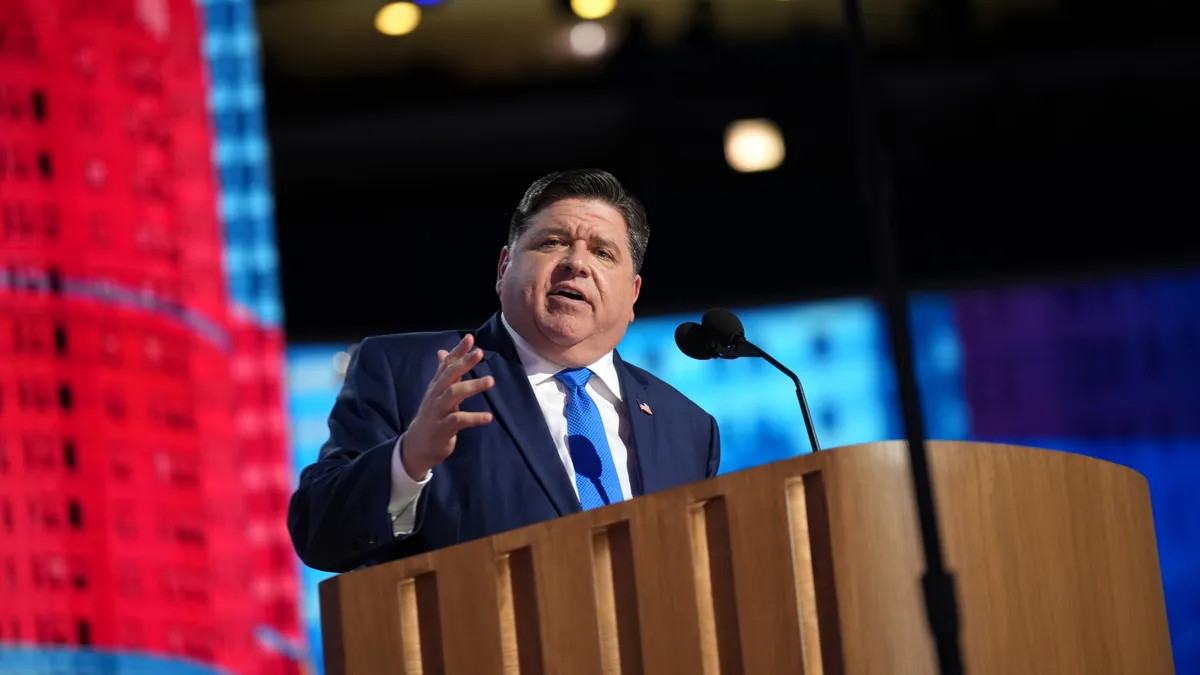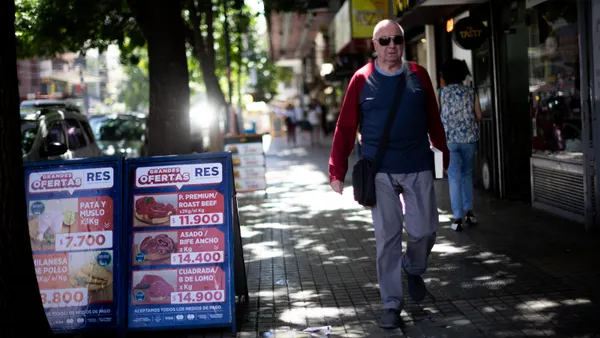Dive Brief:
- Illinois Gov. JB Pritzker has delayed implementation of the Illinois Fee Prohibition Act, a first-in-the-nation law that aims to ban card issuers and their networks from charging merchants interchange fees on taxes and tips when consumers pay with credit and debit cards.
- Pritzker, a Democrat, signed an amendment Monday after the legislature passed a brief amendment on June 1 that delays the effective date of the law by one year to July 1, 2026.
- Bank and payments industry groups, including the Electronic Transactions Association, hailed the postponement as a win, following a lawsuit to halt the new law by some organizations. “We thank the Governor for his leadership in delaying the effective date,” ETA CEO Jodie Kelley said in a Monday press release. “His action today gives the court time to make permanent its preliminary injunction.”
Dive Insight:
The landmark law would have taken effect on July 1 of this year if the Illinois state legislature hadn’t passed the amendment earlier this month to delay its implementation. The two chambers voted to postpone the effective date after court action undercut the impact of the new law and left it open to additional legal challenge.
The Illinois Bankers Association and the American Bankers Association, plus some credit union groups, sued the state last August in the U.S. District Court for Northern Illinois to block the law.
In December, a federal judge overseeing the case entered a ruling to enjoin the law for national and state banks not based in Illinois and federal savings associations. The preliminary injunction means that about 90% of card transactions in Illinois won’t be subject to the new law, according to the ETA, which is working to repeal it.
The state enacted the landmark law last year that would require bank card issuers and their networks to avoid imposing the fees on merchants for taxes and tips on any purchases. But both chambers of the legislature passed a brief amendment Sunday that delays the effective date of the law to July 1, 2026.
The law was promoted by restaurant and retail groups because their members are adamant about finding ways to reduce the interchange fees they pay every time a consumer swipes a card to pay for goods or services. Banks that issue the cards impose the fees, alongside the card networks, as a cost for processing the transactions, and for related services.














